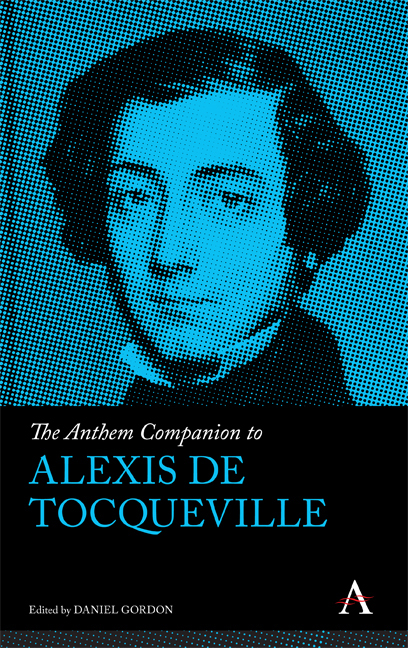Book contents
- Frontmatter
- Contents
- Introduction: Tocqueville and the Sociological Conversation
- A Note on References to Democracy in America
- Part 1 Religion And Immaterial Interests
- Part 2 Language, Literature, and Social Theory
- Part 3 Globalism and Empire
- Part 4 Inequalities Inside Democracy
- Part 5 Citizenship, Participation, and Punishment
- Chapter 9 The Dynamics of Political Equality in Rousseau, Tocqueville, and Beyond
- Chapter 10 Tocqueville and Beaumont on the US Penitentiary System
- Part 6 An Unfinished Project
- Notes on Contributors
- Index
Chapter 9 - The Dynamics of Political Equality in Rousseau, Tocqueville, and Beyond
from Part 5 - Citizenship, Participation, and Punishment
Published online by Cambridge University Press: 12 July 2019
- Frontmatter
- Contents
- Introduction: Tocqueville and the Sociological Conversation
- A Note on References to Democracy in America
- Part 1 Religion And Immaterial Interests
- Part 2 Language, Literature, and Social Theory
- Part 3 Globalism and Empire
- Part 4 Inequalities Inside Democracy
- Part 5 Citizenship, Participation, and Punishment
- Chapter 9 The Dynamics of Political Equality in Rousseau, Tocqueville, and Beyond
- Chapter 10 Tocqueville and Beaumont on the US Penitentiary System
- Part 6 An Unfinished Project
- Notes on Contributors
- Index
Summary
In his book Equality, Stuart White points out that political equality in a democracy is a response to a particular condition of all states: all political systems are “systems of command” and, inevitably, some people have the power to give binding commands to subjects because they have authority as officials within the state. Political equality becomes the distinctive characteristic of democratic political systems, White points out, in that it gives each citizen equal power to issue binding commands within the system of domination in the state. And it does so most basically by giving each citizen one vote and an equal right to participate through free expression and association (White 2007, 25–26). Simply put then, political equality exists when the citizens are equal in exercising the authority to give commands to the state under which they are also equals as subjects.
What renders this aspect of political equality complicated is the fact that there is a built-in tension in this simple definition, a tension that is at once conceptual and political-sociological. The citizens of a democracy are ostensibly equal with regard to giving commands to the state through authorizing legislation, but the state can only give commands if it has sufficient power over the subjects, that is, it has sufficient domination, to impose these commands on all citizens. So if legitimacy in a democracy depends on political equality and popular sovereignty, the power of citizens and the domination necessary to realize this power will always be in tension—unless these politically equal citizens identify with the commands the state gives as their commands. The problem this poses for both the theory and practice of democracy is how to relate the horizontal relations of equal citizens to one another in the exercise of popular sovereignty to the government's vertical exercise of power so that the latter does not undermine the former.
This most fundamental problem in democratic theory was first explicitly articulated by Rousseau. However, it was Alexis de Tocqueville—an avid reader of the Social Contract and The Discourse on the Origins of Inequality—who adapted it to the complex conditions of modern politics in an age of equality.
- Type
- Chapter
- Information
- The Anthem Companion to Alexis de Tocqueville , pp. 169 - 186Publisher: Anthem PressPrint publication year: 2019



